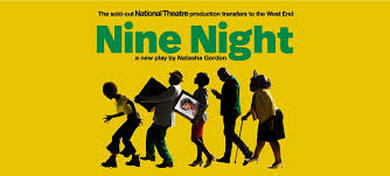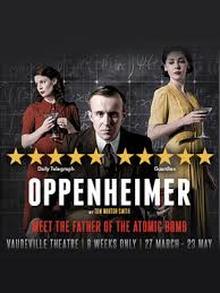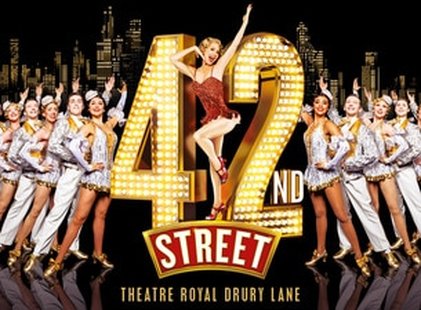 Manchester, England (England): The Allotment Vegan Restaurantby Randi / January 23, 2019
Manchester, England (England): The Allotment Vegan Restaurantby Randi / January 23, 2019For most shows, I’ll boldly say ‘take my advice’ and leave it at that. Who else do you need to listen to? For Nine Night, however, the debut play from Natasha Gordon, I’m going to say sure, heed my advice, but maybe listen to a few other voices as well. This play, while promising and entertaining, has a few core problems that keep it from being great (which we will discuss). But, one of the biggest problems with my experience is that I am hella white, like so white it’s pronounced ‘ha wite’ (which is funny because both my halves are groups that white supremacists consider or have considered non-white!). I’m not saying that people of any background aren’t able to enjoy a play about any other kind of person; that’s literally the point of theatre. But my hwiteness kept me from actually understanding the heavy Jamaican-British hybrid accents of some of the characters. I know, it’s embarrassing. If I were willing to ever break my cardinal rule of theatergoing (which is “everyone shut the fork up!”) I would have been like those old people in movies going ‘what did he say?…what did she say?’ I mainly missed what lines were so funny that the audience would crack up, which is a shame because the one-liners seem to be everyone else’s favorite part of the play. Without the jokes, the central issues with the plot and the characters became more obvious to me, making Nine Night, while enjoyable, feel less than fully formed.
It’s an interesting premise for a play, to have this family dealing with their loss as well as all their issues, plus bringing in relatives they haven’t seen for ages and having to deal with all their issues, and rehashing old fights and bringing up long-buried hostilities. The problem is, that’s all the show is. There’s no real driving force to the plot, although a seemingly shoe-horned aspect of financial problems tries to fill that gap. Various threads of action are scattered about, but none that is picked up and taken forward. Where was the conflict? Is it that Gloria’s son was going to sell his mother’s house without his sister’s approval? That kind of peters out. Is it that the relatives from Jamaica were going to stir things up? They do, but it doesn’t drive the plot. Is it that the brother’s wife is white, or that she’s pregnant? Because all of the potential to mine their relationship is wasted. Is it that they were going to run out of alcohol for all these drunk random guests in their house before the last night?
The conflict was, of course, the histories between the characters, and that’s the second problem: the character development was lackluster. While Gloria’s daughter, Lorraine, is a strong presence and character, no other character on the stage feels fully fleshed out. Since Lorraine is believable, it’s clear the playwright has the potential to create stunning characters. But with, for example, Gloria’s son Robert (the estate agent, barf), he has so much stage time and so many words, SO many words, mostly about how important money is to him. And yet all these lines and all this time don’t work to actually flesh out his character. He was like a stick figure drawing, and instead of effectively coloring in his character, his many lines and all his time just kept drawing over the same straight lines.
Everyone’s favorite character, Aunt Maggie, is touted as the heart of the show and the funniest thing onstage. However, she grated on me, because she was all one-liners and no actual heart (and all her one-liners were the lines that were lost on me (except the one about cremation, when she says ‘we don’t cook our people!’ which the audience roared at and I was like, ‘but cremation is so much better for the planet than burial…’ which was not the right take I guess)). The night of our performance, Aunt Maggie was played by the understudy, so I can’t help but wonder what my experience would have been if I saw the role as played by the actress everyone and every critic raves about. But even with a more developed performance, the character leaves much to be desired. In several parts, Maggie surprises you by secretly griping about Gloria, hiding her photo, spitting at her name, and you’re like WHAT, wow, what happened between them? And you never find out. Certain aspects of their history are hinted at, but it’s way too vague to have any impact, so the instances of Maggie’s rage peppered throughout feel kind of clumsy, instead of coming together at the end to explain something. Usually I really appreciate writers leaving certain events to the audience’s imagination, but there was just way too little to even bring you up to the point where you can start to fill in the blanks yourself.
But there is a lot to enjoy. I really enjoyed the actors playing Anita and Uncle Vince, who seemed to bring a much needed naturalism and gravitas to their roles, underused as they were. I wish we got to see more of how Anita, the youngest, was able to create a new kind of life for herself as the member of the family who may be more English than Jamaican. That’s the compelling sort of character background that would have lifted this story up. I also enjoyed Trudy, the half sister coming from Jamaica. She was all histrionics and over-the-top humor, which was fun, until she applied the same extreme level of emotion to anger and sadness. None of the screaming felt earned since nothing bridged to that extreme emotion, like the problem I had with Falsettos. Even though the upset is regarding some of the worst imaginable things, it didn’t feel like we earned the emotional response yet given what we had seen. You can’t just barge in yelling/crying/whatever extreme emotion and expect the audience to be right there with you.
However, Trudy’s humor was responsible for my favorite scene – when she shows the family the gifts she brought from Jamaica. The pattern of “sweet potato, green banana, tamarind, RUM….x, y, z, RUM” was hilarious and the audience loved it. Of course, the man near us caught on to the joke and starting shouting RUM every time Trudy reached into her bag, which kind of ruined it but, ya know, people love to ruin things.
So there’s a lot that was interesting and enjoyable about Nine Night, and a lot that’s promising but needs further fleshing out. But for a debut play, it’s pretty impressive, with so much potential, and I can’t wait to see what Gordon does next.
INFORMATION
Nine Night is at Trafalgar Studios until February 23. Trafalgar studios is like one big stalls section but with balcony-style rake. It is the STEEPEST theatre I’ve ever seen. You could be in the 10th row ‘orchestra’ like I think we were but you’d be at a 2nd balcony elevation.
The show is 1 hour 45 minutes with no interval.







